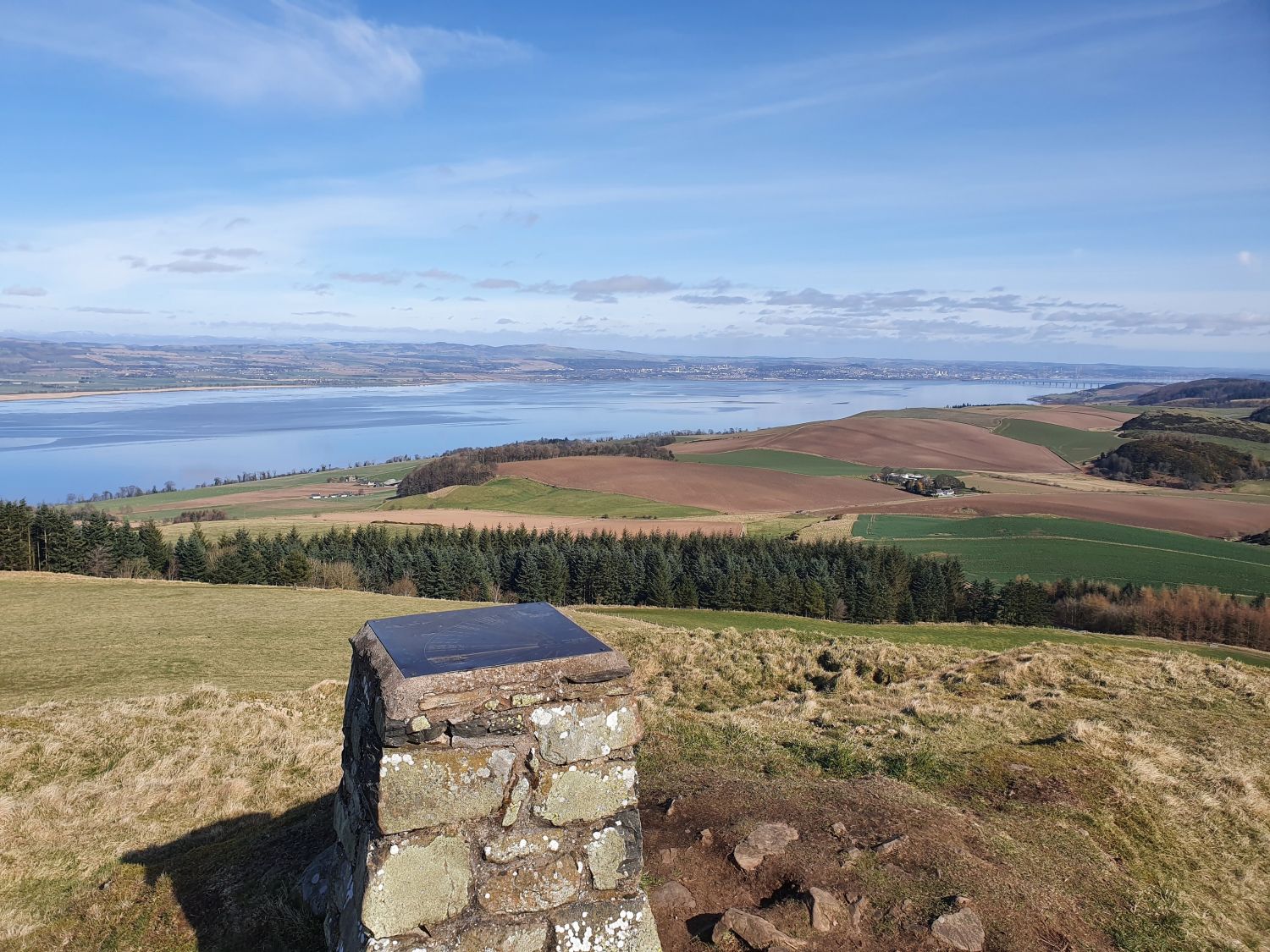
Why are records important?
It is vital we collate, register and monitor in detail Fife's wildlife resources, to adequately conserve species, habitats and such places for people to enjoy.
We need good quality information on:
- the distribution of species and habitats
- the status of a species or habitat, i.e. is it common or rare
- the condition of habitats (usually determined by the species present)
To help us:
- ensure planning decisions are better informed
- have a better understanding of changes in species populations and environment to protect individual species and habitats

Why should you record wildlife?
We want your records! We want to hear about what animals or plants you have seen, whether it be in your garden, local park or out and about. All records are important, no matter how common the species may be, and everyone can make a real contribution to increasing understanding of the status and distribution of species in Fife.
Being involved with nature and getting outdoors is fun and provides some amazing sensory experiences, as well as having a positive impact on physical and mental health.
Collecting data about a group of species or certain kinds of habitats is, for many people, a natural extension of their general interest in wildlife and is a relatively cheap hobby. To help identify species correctly, a relevant guide is essential, and joining a wildlife group brings contact with other interested people. Study courses are also run by various organisations to learn new skills.
Many people enjoy feeling part of nature, part of their local community/environment and get satisfaction from protecting and improving their area - for themselves, for others, for birds/bees, etc. It gives many wildlife recorders a sense of contribution, knowing that their observations are being put to good use and providing information on wildlife populations and helping the environment.
How to record wildlife
Wildlife or biological recording simply means taking note of the plants and animals we come across in our everyday lives, from noting which birds visit the garden bird feeder to detailing the plants and trees in the local woodland. As well as being the first step for nature conservation, recording wildlife is hugely enjoyable for people of all ages and abilities – no specialist knowledge is needed!
We just need to know 4 things:
- What you saw
- Where you saw it (ideally with a grid reference*)
- When you saw it
- Who saw it
*Click here to go to Grid Reference Finder for a quick and easy way to find out a grid reference.
Any other information, such as whether the animal you saw was male or female, juvenile or adult, adds to the value of the record. Even records of dead animals are useful in understanding species distribution and dispersal.
Submit your records to iRecord or email them, along with any photos of your wildlife sightings, to nature.info@fife.gov.uk.
Your records will be added to our database of species records and may be shared with the NBN Atlas Scotland. If you do not want your sightings to be shared with the NBN Atlas, please let us know.
Check out our Submitting records page to find out more about how to submit your records.
Fife Recorders Group
The Fife Recorders Group is a collection of people with a high degree of expertise in particular taxonomic groups. It includes persons holding key roles in the area, such as Vice County Recorders, as well as other individuals with valuable knowledge, experience and identification skills. Members’ relationship with Fife Nature Records Centre may include helping with identification queries, record verification, and delivering training.
The group usually meet annually to catch up, discuss ideas and share experiences and help guide Fife Nature in supporting recorders and recording; this may also be done through correspondence at the preference of the member. If you would like to join the group, please email nature.info@fife.gov.uk.
| Name | Taxonomic group(s) represented | Capacity on Fife Recorders Group | Web link (if applicable) |
|---|---|---|---|
| Dr Adrian T Sumner | Non-Marine Molluscs | Conchological Society representative in Scotland | The Conchological Society of Great Britain and Ireland |
| Allan W Brown | Wildfowl (In particular swans and geese) | WeBS (Wetland Bird Survey) counts organiser for Fife (inland) on behalf of the BTO Lothians & Fife Swan and Goose Study Group (unofficial group linked to specific studies) | |
| Brian H Little | Hymenoptera, with a particular interest in Aculeates (Bees, Wasps and Ants) and Parasitica. | Expertise. Working with Mark Shaw at National Museums Scotland on the identification and re-curation of various Hymenoptera | |
| Bryan Smith | Small mammals - Squirrels | Fife Red Squirrel Group - Chair | |
| Chris du Feu | Slugs | National slug verifier for iRecord and long-standing amateur slug recorder | |
| Clare Rickerby | Bryophytes | Vice-County Recorder | the British Bryological Society |
| Elspeth Christie | Butterflies | County Recorder (Joint) (Fife and Clacks) | Butterfly Conservation, East Scotland |
| Dr Gillian J Fyfe | Butterflies | County Recorder (Joint) (Fife and Clacks) | Butterfly Conservation, East Scotland |
| Graham Sparshott | Birds | County Recorder | Fife Bird Club |
| Nigel Voaden | Moths | County Recorder | Butterfly Conservation, East Scotland |
| Paul Blackburn | Birds | BTO Regional Representative for Fife and Kinross | The BTO Regional Network |
| Ronnie Mackie | Cetaceans | Experienced recorder of Cetaceans. Volunteer for Hebridean Whale and Dolphin Trust and WDC (Whale and Dolphin Conservation) Shorewatch (surveying and training new volunteers) | |
| Sandy Edwards | Vascular Plants | County Recorder | Botanical Society of Britain & Ireland |
| Simon J Hayhow | Diptera (with a wide interest in other groups) | Experience and expertise, notably as National Recorder for Larger Brachycera | |
| Tony Wilson | Fungi | County Recorder |

